The Isolation of Social Media
The relentless onslaught of positive news creates a vicious cycle in which users only share their own positive information in order to keep up.
As a teenager, I often find myself looking in the mirror after scrolling through my Instagram feed, a stream filled with perfect lives, flawless faces and perfect bodies.
Why can’t I have a smaller waist like all the Instagram models? Why can’t I look like the people I see all over social media?
I compare myself to these images, which makes me question my worth and identity, and I often wonder, when will it stop? When will I recognize myself as beautiful just the way I am, and that if I continue comparing myself to others, it will only lead to the loss of my identity?
Social media and perceived isolation
The irony of social media is that it has distanced us from one another. On one level, it has brought strangers from all over the world closer together, but at the same time, social media has dissociated each of us from our surroundings. As a society, we become so involved in our virtual social contacts that we are entirely unconscious of the real human beings around us.
“If we’re always locked in our devices and social media, are we actually socializing in person?” asked guidance counselor Jason Downey.
Social media and online networking have become firmly integrated into our lives. But individuals tend to focus on the positive aspects of their lives. This relentless onslaught of positive news creates a vicious cycle in which individuals only share the good information in order to keep up, leading their friends to only share their own good news in order to keep up.
In fact, a 2021 study published in the American Journal of Preventative Medicine found that those who spent the most time on social media were twice as likely to have perceived social isolation than those who spent the least.
Furthermore, social media eliminates any sense of vulnerability and authentic shared experiences, which is crucial in fostering emotional connection among friends. Allowing others to see you as ashamed or vulnerable is essential to forming genuine relationships; yet, how can people ever connect when there is no space to share honestly on social media?
The same 2021 study from The American Journal of Preventive Medicine found that people were twice as likely to become depressed while using social media.
“We are inherently social creatures, but modern life tends to compartmentalize us instead of bringing us together,” wrote Dr. Brian Primack, lead researcher on the study. “While it may seem that social media presents opportunities to fill that social void, I think this study suggests that it may not be the solution people were hoping for.”
The truth is that many individuals create a picture of themselves that they want the rest of the world to see. This can cause a breach in relationships since a lack of transparency can lead to attachments that aren’t entirely established, since the need to maintain the facade hinders individuals from genuinely getting to know one another.
A 2021 study published in the American Journal of Preventative Medicine found that those who spent the most time on social media were twice as likely to have perceived social isolation than those who spent the least.
Social Media and Loneliness
The paradox of social technology, which diminishes our social interaction, affects many individuals and might lead to social discomfort and loneliness. These apps provide opportunities for us to connect with others, yet they also cause us to be alone together.
Some people may utilize social media to expose secret facets of their personality that they do not reveal in real life.
“[We] are losing that social aspect of going up and greeting [others] and saying, ‘How are you doing?’” Downey said. “But then, how are [we] supposed to [learn] what empathy means?”
Some people may use social media to interact with others because they are lonely. Others may use social media to connect with people around the world and to learn about what is going on in their lives. All of the reasons individuals use social media are to accomplish “more” in their lives and this “more” becomes dependent on the app like an addiction.
The ultimate accomplishment for some social media users is to become e-famous, defined by an ever-increasing influence on their preferred apps. People on Instagram, for example, seek to increase their number of followers, preferences and comments. In doing so, they chase the fulfillment of attention that is always just out of reach.
Social media and self-esteem
As adolescents in today’s world, we are simply striving to prove ourselves to people our own age. People have always sought to be accepted by others. However, this need for approval has become toxic in the age of social media, where, unlike previous generations, we can no longer leave this atmosphere at school. We are stuck with social media always a click away.
Social media has a detrimental impact on adolescent self-esteem and body image. When we log into Instagram on a regular basis and see what is depicted as the perfect figure, we come to believe that we must attain that image in order to be popular.
As a result, we are so addicted to the false illusions that social media portrays that we often forget that we are stuck in a fake environment. This artificial social media environment has caused students around the world to compare themselves to this simulated reality. When young people see images of social influencers that have perfect bodies, and when they fail to realize that these images have been filtered, edited and Photoshopped, their self-esteem is undermined. It is clear why teens in the age of social media feel so insecure about their appearance.
Eva Raymond, a junior at Notre Dame Cathedral Latin High School, is one of many teens who feels that Instagram has affected her mental health.
“It’s just the fact that I see so many other pretty women that have things I don’t, so it makes me insecure,” Raymond said.
When we log into Instagram on a regular basis and see what is depicted as the perfect figure, we come to believe that we must attain that image in order to be popular.
Students worldwide can relate to what Raymond feels, and it is not okay. It is not okay that students constantly feel ugly because they will always compare themselves to false images; it is not okay that social media takes away identities from beautiful people who do not conform to societal standards.
“Social media has impacted my mental health by creating higher standards than possible for myself,” Kenston High School sophomore Sophia Suskowicz said.
These unrealistic standards contribute to mental health problems such as eating disorders, depression and anxiety.
“I would often compare her body to what she saw as a perfect body on social media,” said a BHS junior who wishes to remain anonymous. “And I ended up developing an eating disorder last year.”
This relentless onslaught of positive news creates a vicious cycle in which individuals only share the good information in order to keep upThis relentless onslaught of positive news creates a vicious cycle in which individuals only share the good information in order to keep up
The Solution
It is natural for social media users to celebrate the good things in our lives and shift emphasis away from the unpleasant or tragic occurrences. The conventional cure for loneliness–making more acquaintances and connections–may only increase the problem if it is done only on social media. While social media might help some people feel less lonely, the advantages are not universal and are not all the same.
Despite the social connectedness provided by social media, some people may still feel socially isolated. The remedy would thus be to lessen the sentiments of alienation that pervade social media and abolish the environment of one-upmanship that spawns negative thoughts and feelings, and the most successful strategy for reducing loneliness is to focus on minimizing negative mental processes which can be done through metacognition and developing mechanisms to deal with negative thoughts.
There are many ways we can minimize negative mental processes. First, we can identify misrepresentation of thoughts. Our brains have intelligent and tenacious ways of persuading us to believe false realities and these realities reinforce negative thinking. Examples of misrepresentation of thoughts are thinking in black and white, taking things to heart, choosing to only see the negative side of things (filter thinking) and catastrophizing every situation. Once these thoughts come into our brain, we can deal with them by challenging these thoughts in which we take a step back and look at the overall reality of our thoughts. Loneliness may be decreased by connecting with others in person and helping them to acquire more solid social skills and a connection with reality especially during COVID times.
If you’re feeling sad because of social media, remember that you’re not alone. Seek assistance as soon as possible. Unplugging for a few minutes and picking up the phone to connect will go a long way.

Lana Lagman (she/her) began writing for the Beachcomber in the fall of 2020. She likes to cover stories concerning mental health, diversity and new medical/scientific...

Anah Khan (she/hers) started writing for the Beachcomber in 2021. She is interested in covering new organizations and programs in BHS and writing opinion...



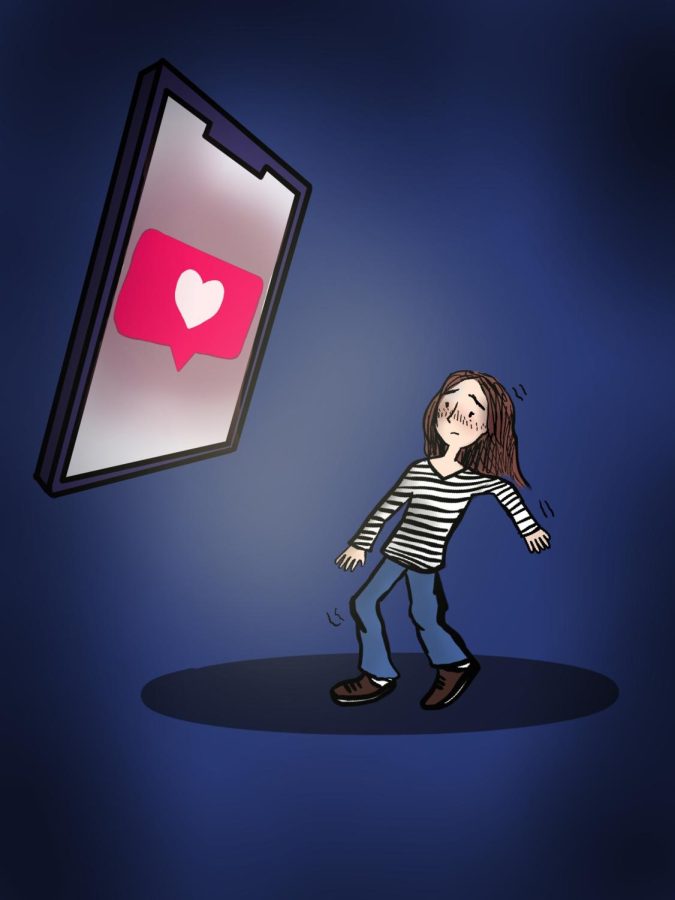


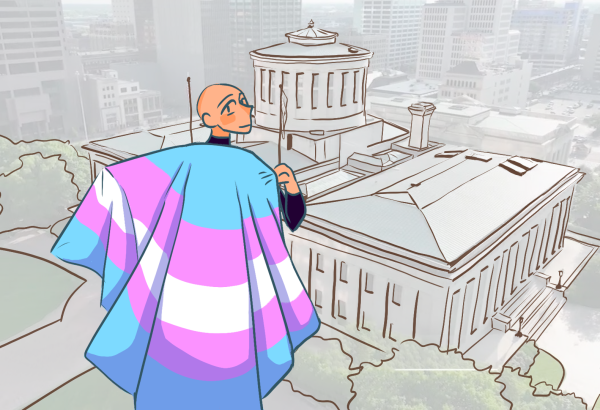
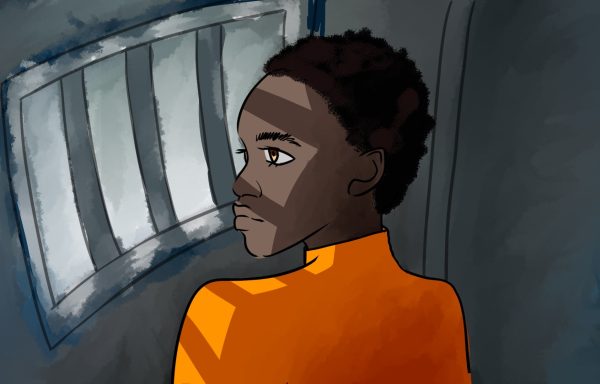
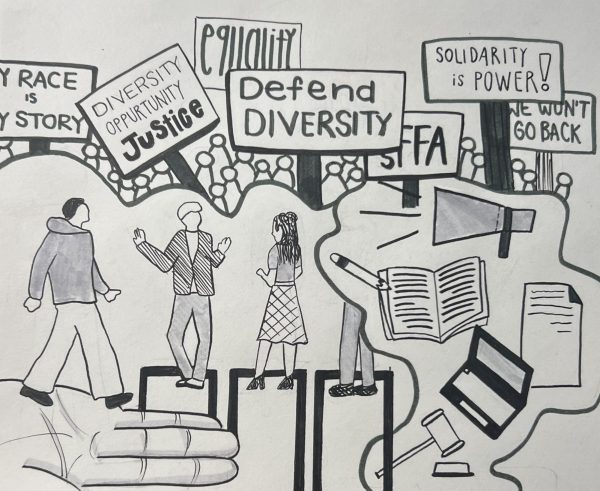





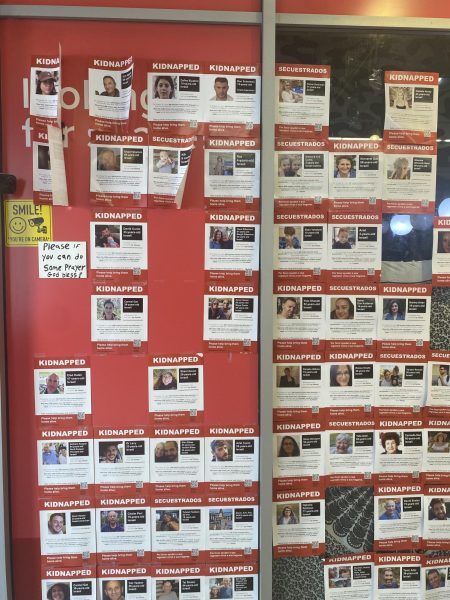
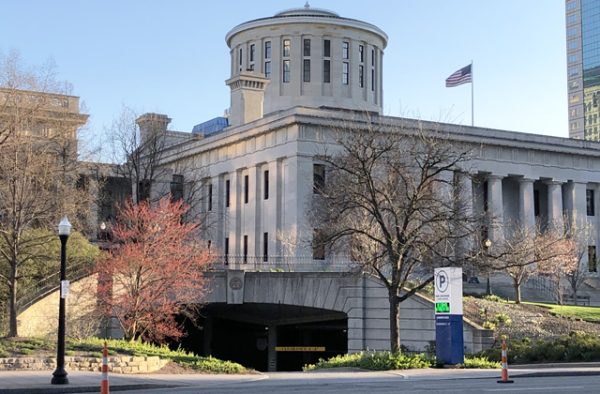



Klea • Jan 10, 2022 at 5:32 PM
You did an amazing job with this piece! Thank you for bringing awareness to this issue.
Angelina • Jan 10, 2022 at 4:07 PM
This is such beautifully written.
eva • Jan 10, 2022 at 1:06 PM
You did such a good job, this is written so well. I hope this helps to bring awareness to people struggling with self image and doubt.
Alesha Flake • Jan 10, 2022 at 11:14 AM
Wow, what a powerful piece.